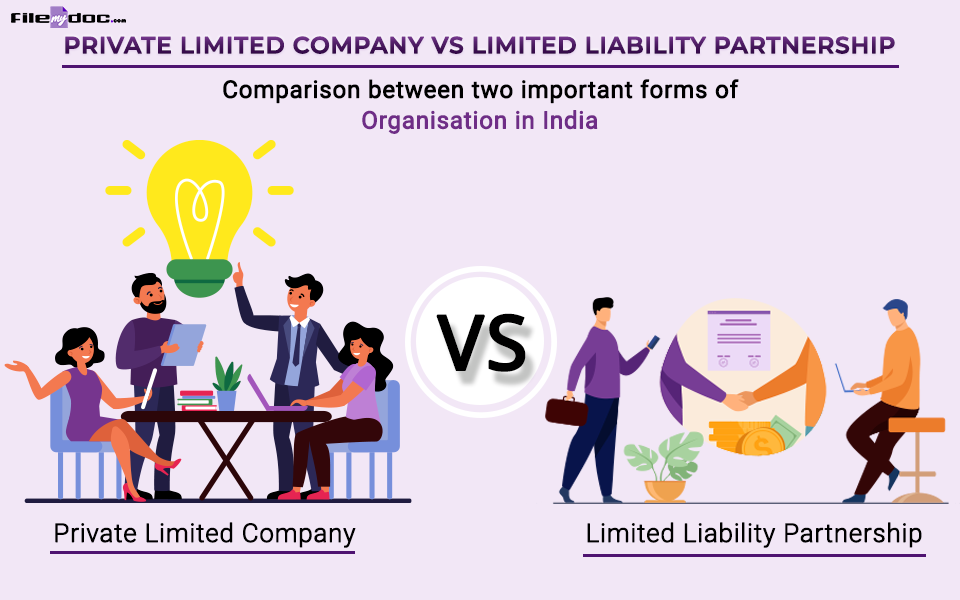Many Entrepreneurs starting a new business are curious and confused about the
difference between a Private Limited Company (Pvt Ltd) vs Limited Liability Partnership (LLP).
Both entities offer many similar features required to run a small to large sized business, while they also differ in certain aspects.
In this article, We will compare Private Limited Company and LLP from the viewpoint of an Entrepreneur starting a new business.

Difference Between Private Limited Company VS LLP: Generally there is a confusion among the startups in India about the nature of the entity to start their business with. In order to solve their confusion, they do lots of research online to select the best suitable nature of entity for their type of business and scale of business. Generally due to lack of knowledge, they opt for a less suitable type of entity and later it creates more problems for them.
Basics
In a nut shell, if you are into a small or mid-size business and you don’t seek any funding, you should preferably opt for an LLP.
Both LLPs and Private limited companies are to be registered with the ministry of corporate affairs. And both has almost similar process for registration.
Difference Between Private Limited Company VS LLP
| Basis | Private Limited Company | Limited Liability Partnership |
| Number of Members | Min – 2, Max – 200 | Min – 2, Max – No Cap |
| Taxes |
|
|
| Capital Contribution | Can be started with any paid-up capital | Not specified |
| Personal Liability | Limited to the extent of the unpaid capital | Limited to the extent of the contribution to the LLP |
| Foreign Nationals as shareholder / Partner | A foreign national can be a shareholder | A foreign national can be a partner |
| Meetings | 4 Board of directors meetings a year and an annual general meeting is compulsory | No such requirement |
| Annual Returns | Annual Accounts and Annual Return to be filed with ROC. | Annual statement of accounts and solvency & Annual Return has to be filed with ROC. |
| Audit | Compulsory | Required only in case contribution is above 25L or if annual turnover is above 40L |
| Dissolution | Less procedural | Very procedural |
| Venture capitalists preference | High | Low |
| Credibility | High due to strict compliance | Low |
| Conversion | Can be converted to an LLP | Cannot be converted to a private limited company |
| Cost of registration | High | Low |
| Annual ROC cost | High | Low |
| ESOP (Employee Stock Ownership Plan) | Possible | Not possible |
Conclusion
Private limited companies are well established in India, and has a wide spread recognition, whereas LLP being a relatively new concept in India, Investors prefer investing in Companies rather than LLPs.
Now in case you are looking to raise fund or offer ESOPs to your employees, private limited company is the way to go. In case you don’t have any such requirement you should probably go for an LLP. However, do take some time to think over it, as if you get an LLP registered you need to get all other registrations done on its name. And in future you think to switch from an LLP to a Company, considerable efforts would be required.



















